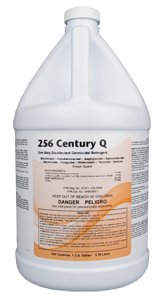C. Diff. Infection Control
C. Diff. (Clostridium Difficile) is a bacterium that causes inflammation of the colon. People can become infected if they touch a surface contaminated with feces. The bacteria can also be spread through the hands of healthcare workers. Symptoms of infection include diarrhea, fever, nausea, and abdominal pain. C. Diff. infection is usually treated with antibiotics for 10 days.
Everyone has C. Diff. bacteria living in their colon. However, they are usually held in check by other natural bacteria living in the colon. If certain antibiotics are used too aggressively, the natural bacteria in the colon are wiped out. This leaves the C. Diff. to run rampant. In this way, overuse of antibiotics can also cause C. Diff. infection.
C. Diff. has the unique ability to live in a dormant spore form, making it one of the most difficult pathogens to kill. C. Diff. can also live for very long periods on surfaces, and is resistant to many disinfectants.
The CDC has recommended a special procedure for C. Diff. infection control. The infection control procedure is a two-step process: first, general cleaning and disinfection with a quat-based disinfectant, followed by a broad-spectrum disinfection with an EPA-registered bleach product. Another important concept of this infection control procedure is to institute contact precautions in cases of C. Diff., and use this special disinfection procedure only in isolated areas.
Any of Multi-Clean’s quat-based disinfectants, such as Century Q 256, Microcide TB, or Century Q Wipes, can be used effectively in the first step of the CDC’s recommended two-step procedure.
For more information on C. Diff. infection control, visit the CDC website or Multi-Clean’s Clostridium Difficile Pathogen Primer.





